Filter by
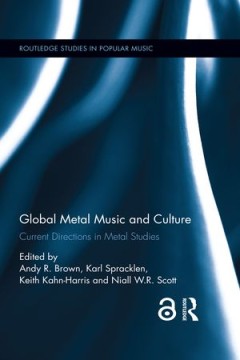
Global Metal Music and Culture: current directions in metal studies
This book defines the key ideas, scholarly debates, and research activities that have contributed to the formation of the international and interdisciplinary field of Metal Studies. Drawing on insights from a wide range of disciplines including popular music, cultural studies, sociology, anthropology, philosophy, and ethics, this volume offers new and innovative research on metal musicology, gl…
- Edition
- 1
- ISBN/ISSN
- 9781317587248
- Collation
- -
- Series Title
- -
- Call Number
- 780

Noise Thinks the Anthropocene: An Experiment in Noise Poetics
In an increasingly technologized and connected world, it seems as if noise must be increasing. Noise, however, is a complicated term with a complicated history. Noise can be traced through structures of power, theories of knowledge, communication, and scientific practice, as well as through questions of art, sound, and music. Thus, rather than assume that it must be increasing, this work has fo…
- Edition
- -
- ISBN/ISSN
- 9781950192052
- Collation
- -
- Series Title
- -
- Call Number
- 780
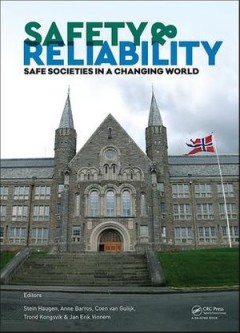
Suite on "Spiritus Silvestre" For Symphony
Charles D. Keeling, climate science, oceanography, music
- Edition
- -
- ISBN/ISSN
- 9780615747101
- Collation
- -
- Series Title
- -
- Call Number
- 780
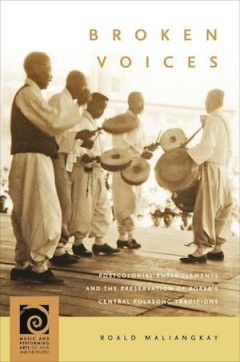
Broken Voices : Postcolonial Entanglements and the Preservation of Korea's Ce…
Broken Voices' is the first English-language book on Korea's rich folksong heritage, and the first major study of the effects of Japanese colonialism on the intangible heritage of its former colony. In 2009, many Koreans reacted with dismay when China officially recognized the folksong 'Arirang', commonly regarded as the national folksong in North and South Korea, as part of its national intang…
- Edition
- -
- ISBN/ISSN
- 9780824878337
- Collation
- 264 halaman
- Series Title
- -
- Call Number
- 700 MAL b
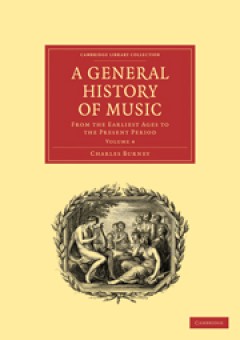
A General History of Music
Charles Burney (1726–1814), was the foremost music historian of his day. The General History, his most famous work, was published in four volumes between 1776 and 1789 and is still of great value today. Burney wanted to write something which would appeal to and inform the musician and the general reader. Research for the History was undertaken during two European tours, in 1770 and 1772, cons…
- Edition
- -
- ISBN/ISSN
- 9780511711220
- Collation
- -
- Series Title
- Cambridge Library Collection - Music
- Call Number
- -
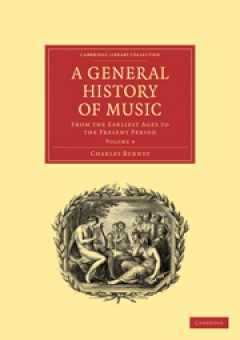
A General History of Music
Charles Burney (1726–1814), was the foremost music historian of his day. The General History, his most famous work, was published in four volumes between 1776 and 1789 and is still of great value today. Burney wanted to write something which would appeal to and inform the musician and the general reader. Research for the History was undertaken during two European tours, in 1770 and 1772, cons…
- Edition
- -
- ISBN/ISSN
- 9780511711206
- Collation
- -
- Series Title
- Cambridge Library Collection - Music
- Call Number
- -
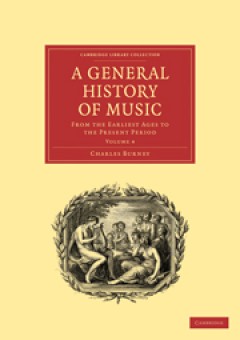
A General History of Music
Charles Burney (1726–1814), was the foremost music historian of his day. The General History, his most famous work, was published in four volumes between 1776 and 1789 and is still of great value today. Burney wanted to write something which would appeal to and inform the musician and the general reader. Research for the History was undertaken during two European tours, in 1770 and 1772, cons…
- Edition
- -
- ISBN/ISSN
- 9780511711237
- Collation
- -
- Series Title
- Cambridge Library Collection - Music
- Call Number
- -
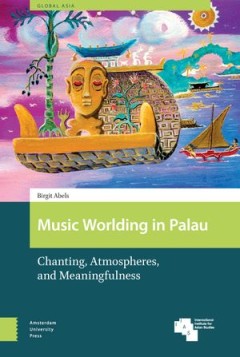
Music Worlding in Palau: chanting, atmospheres, and meaningfulness
Music Worlding in Palau: Chanting, Atmospheres, and Meaningfulness is a detailed study of the performing arts in Palau, Micronesia as holistic techniques enabling the experiential corporeality of music’s meaningfulness—that distinctly musical way of making sense of the world with which the felt body immediately resonates but which, to a significant extent, escapes interpretive techniques. D…
- Edition
- -
- ISBN/ISSN
- 9789048550517
- Collation
- -
- Series Title
- -
- Call Number
- 780
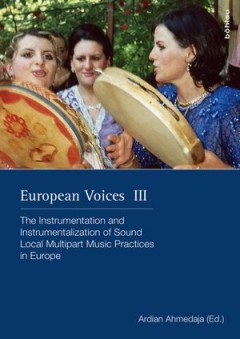
European Voices III: The Instrumentation and Instrumentalization of Sound Loc…
Local multipart music practices are based on the intentionally distinct and coordinated participation of music makers in the performing act. Following the rules of interaction while promoting at the same time their personal goals, the protagonists share their own treasure trove of experiences and cultural affiliations and shape sounds and values. Such complex and dynamic processes are central t…
- Edition
- -
- ISBN/ISSN
- 9783205205135
- Collation
- -
- Series Title
- -
- Call Number
- 780
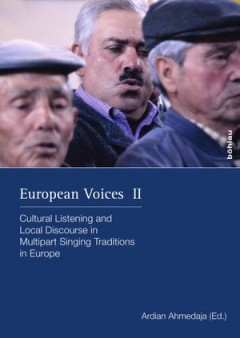
European Voices II: Cultural Listening and Local Discourse in Multipart Singi…
Although the fundamental meaning of basic terminology is well established for every scholarly discipline, many concepts are often questioned and redefined. In the case of ethnomusicology, this process is all too familiar, as researchers within the discipline focus on the most diverse of music cultures. The manifold worldviews of the resource persons, as holders and presenters (in both meanings …
- Edition
- -
- ISBN/ISSN
- 9783205787372
- Collation
- -
- Series Title
- -
- Call Number
- 780
 Computer Science, Information & General Works
Computer Science, Information & General Works  Philosophy & Psychology
Philosophy & Psychology  Religion
Religion  Social Sciences
Social Sciences  Language
Language  Pure Science
Pure Science  Applied Sciences
Applied Sciences  Art & Recreation
Art & Recreation  Literature
Literature  History & Geography
History & Geography